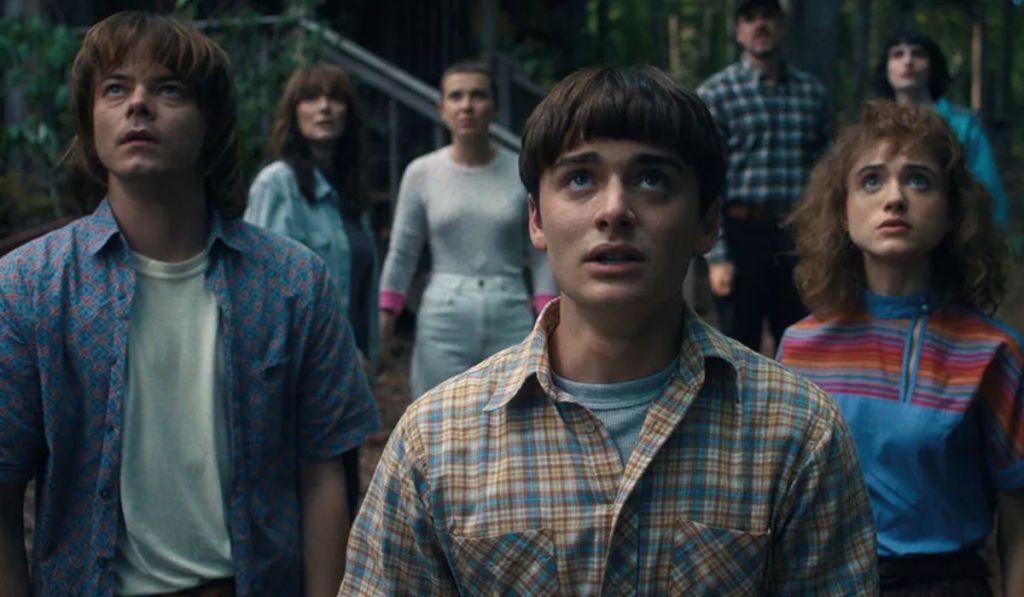Let anyone who hasn’t been bothered about how long it’s taking for the next season of their favorite show to come out speak up. In the past few years, television has gone through a major transformation that has frustrated audiences. This is because the traditional format of U.S. series, with multiple seasons, cliffhangers, and mysteries that drag on for a long time, has been getting more and more criticism. Sure, there have been valid reasons for these breaks, like the COVID-19 pandemic in 2020 and the Writers’ Strike in 2023, but the popular feeling today is pretty clear: fans are done waiting for years to get answers.
Videos by ComicBook.com
It’s 2025, and lots of shows are taking way too long to come out – Stranger Things, Euphoria, House of the Dragon, The Witcher, and more. Some are already scheduled to move forward, but others, like Severance, just premiered, with Season 2 only coming out now after three years. Why is that? What makes a show take so long to air, with such long gaps between seasons, that the audience doesn’t even remember the important details to follow the story? There might be some reasonable explanations, but overall, it raises a big question: does American TV need to move toward a model more like the British one, with more concise and closed-off stories?

Let’s kick things off: for a story to work in a serialized format, it needs to have a plot that actually pays off and grabs your attention. In the past, we had long shows with tons of seasons and episodes (take, for example, The Vampire Diaries, Lost, The Walking Dead, or Supernatural), but the promise was that you’d only have about a year-long wait for the next set of episodes (plenty of time for the whole production to wrap up). But then streaming services came along, and everything started to change with how shows were consumed and produced. Nobody wanted to wait to watch anything – that’s how binge-watching became a thing.
To keep up, shows started going with fewer episodes per season, plus dropping the entire season at once. Was that a good thing? Totally. But, of course, drawbacks started showing up. To deliver something of quality that met the new demand, it would take a lot more time. It’s understandable – there’s all the complexity involved, from heavy investments in special effects and sets to post-production. Then there’s scheduling cast and the creative team – big names are often juggling multiple projects at once, which makes everything take longer. These are the facts, but what’s the solution then?

The audience’s frustration just keeps growing, and with that, the temptation to give up on following. Maybe it’s time to shift to something closer to the British model. U.K. shows, for example, are generally tighter, with stories that start and finish in one season. Fleabag, Baby Reindeer, Normal People, and Years and Years are great examples of this. Unlike American shows, British ones wrap up their narratives in a limited number of episodes, making them easier to follow and more satisfying to watch. It’s the least risky formula and obviously guarantees success. While it’s super interesting to immerse the audience in a really big and creative universe, there has to be a balance to make everything work and keep things moving forward.
[RELATED – 10 Best Netflix Shows to Binge in One Weekend]
Still, if the goal is to want something intriguing and/or different, there’s the hybrid format that some U.K. shows have successfully adopted as well, like Doctor Who. Even though there’s a serialized aspect that you have to follow, it’s one of those shows that you can still watch without a huge commitment. You still need to know the backstory, but it’s not overwhelming. Plus, over the years, it’s been a series with about a year gap between seasons. And of course, the procedural format with standalone episodes, like Black Mirror, has also been really successful. Honestly, not everything is about sticking to the structure and narrative style. A good script is the defining factor.
Game of Thrones was one of the most-watched shows all around the world. It’s a fantasy genre series and still ran for eight years. Incredibly, it managed to deliver seasons pretty quickly to the public (except for the last few), but that was only thanks to a mix of things: smart planning, multiple filming crews, efficient post-production, and a commitment to deadlines. Sure, everyone would love more shows like that, but in today’s world, is it really worth it? Is it worth creating huge, complex worlds if the biggest challenge is keeping people interested long enough until the next season? House of the Dragon, for example, had a second season that didn’t really hit the mark after fans suffered through a two-year wait.

These days, there are a lot of pros and cons to consider. With so many shows fighting for attention, does it make sense to risk long gaps between seasons and possibly be forgotten? Do audiences still have the patience to follow stories that take years to finish? Are studios really willing to invest in massive productions knowing that viewers can easily jump to the next big thing? What’s the point of putting all that effort into an ambitious show if the wait for the payoff kills the excitement along the way? Moving to a more compact format with closed arcs could bring a lot of benefits to TV. By creating shorter, more direct stories, shows can increase the quality of their content while also avoiding burnout and long waiting periods for their audiences.
The trend of U.S. TV productions pushing back the release of new seasons for long periods is something that needs to be reconsidered. The British model, with its more concise, self-contained seasons, could be the key to a future that’s a thousand times more satisfying for television. The industry needs to find a balance between quality and speed sooner rather than later. It’s all about adapting and reinventing, because just as society changes, so do consumption habits and audience expectations. And in the end, those who don’t keep up will be left behind.








